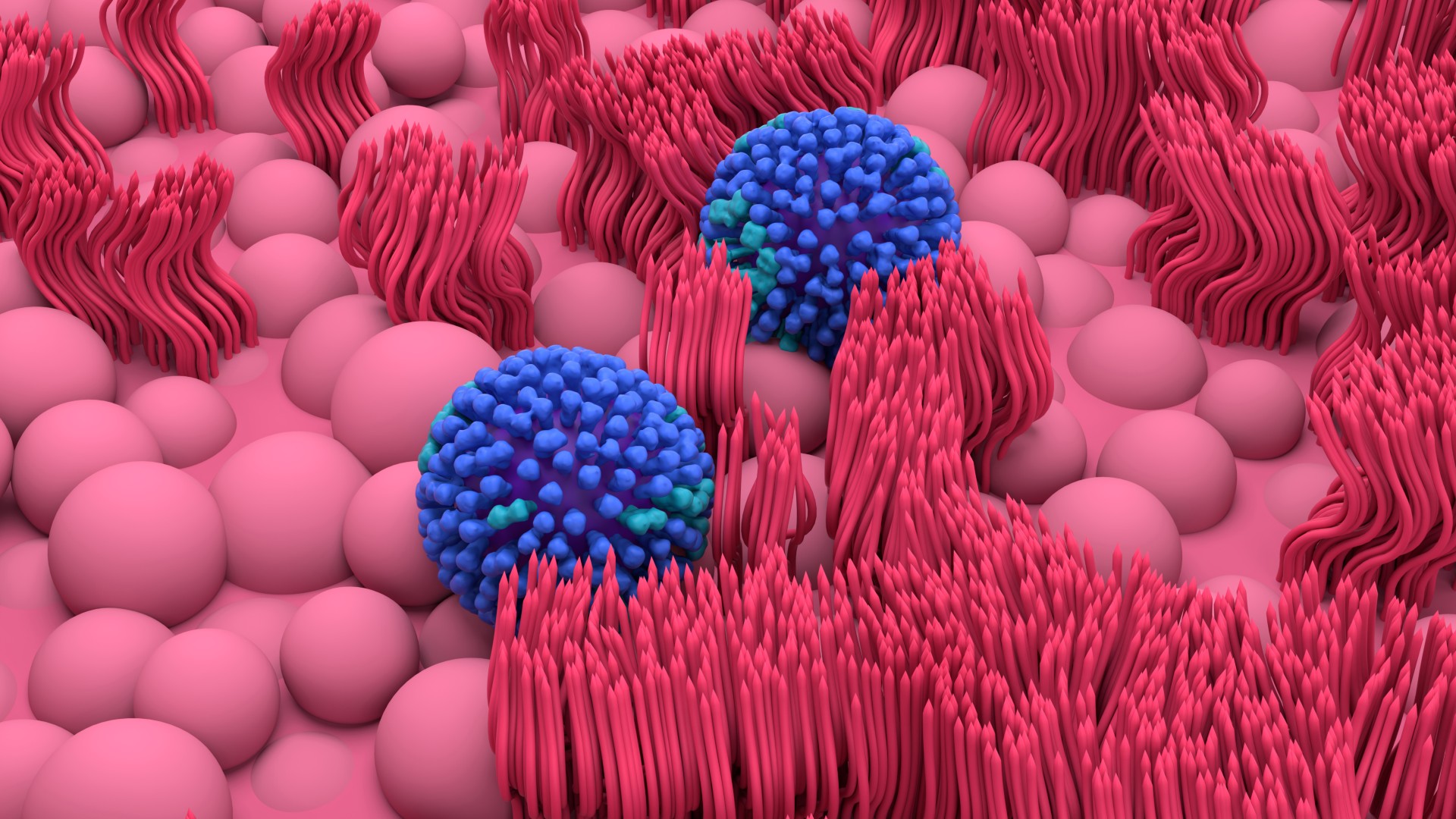You may have been told to bundle up before venturing outside in the winter, otherwise you’ll “catch a cold.” But are you actually more likely to get a cold when it’s chilly out?
Put simply, yes: The incidence of respiratory infections, such as the common cold, peaks in temperate regions during the winter. While frostier weather doesn’t directly cause infections, research suggests that it can make you more likely to catch them.
A common explanation for this comes down to how respiratory infections are transmitted from person to person. Viruses that cause the common cold and the flu, or influenza, spread from infected people to others via droplets in the air, which are released as infected people sneeze, talk or cough. Individuals can also become infected with these viruses when they touch contaminated surfaces or objects and then touch their mouth, nose or eyes.
During the winter, we typically spend more time indoors, meaning we’re spending more time closer to other people, potentially in places with poor air ventilation. This makes viruses more likely to spread within the population.
Related: How to get better faster when you have the flu, according to science
But beyond these behavioral changes, scientists have shown that there are distinct biological mechanisms that explain why we get more colds in cold weather — and it’s related to the temperature and humidity of the air.
For instance, “epithelial” cells that line the nose are a first line of defense against viruses breathed in from the air. Normally, in response to viral infection, these cells increase the secretion of tiny, fluid-filled sacs — called extracellular vesicles — which help mop up viral particles before they can invade the rest of the body, Dr. Benjamin Bleier, a director of endoscopic skull base surgery at Massachusetts Eye and Ear center, told Live Science.
These vesicles also contain molecules called microRNA that prevent viruses from making copies of their genetic material. This stops the germs from replicating and getting into our tissues, he said.
However, Bleier and colleagues have shown that this system gets derailed in colder weather. For example, this happens when the epithelial cells in the nose are exposed to temperature drops similar to what may happen when people go outside in cold weather — when the temperature inside the nose plunges from 98.6 to 89.6 degrees Fahrenheit (37 to 32 degrees Celsius). As a result, respiratory viruses effectively double their capacity to replicate, the team found.

These findings imply that wearing facial coverings, such as masks, may be beneficial for two main reasons, Bleier said. Firstly, these coverings lower the amount of virus particles that can enter the nose, and secondly, they retain a cushion of warm air in front of the face that helps keep nasal epithelial cells working their best, he said.
Another thing that can affect how the body responds to viruses in the winter is humidity, as the air inside our homes tends to be drier than usual during this season.
“When you import the cold air from the outside and then heat it inside the home, that air contains very little water vapor,” Akiko Iwasaki, a professor of immunobiology at Yale University in Connecticut, told Live Science. Previous research has shown that deaths from the flu increase in the U.S. as the humidity of the air falls.
In a study published in 2019, Iwasaki and team found that when mice live in dry air conditions — between 10% and 20% relative humidity — their ability to fight influenza infections declines, compared with mice living in 50% relative humidity.
That’s because dry air, like cold air, also messes with epithelial cells. In this case, it stops tiny fingerlike projections, called cilia, that stick out from the cells from wiggling around and clearing away viral particles. When the cilia malfunction, viruses can enter cells in the body much more readily, Iwasaki said.
For unknown reasons, in dry conditions, immune cells within the respiratory tract also secrete fewer chemicals, called interferons, which help to prevent viruses from replicating.
Although this 2019 study was conducted in mice, similar research in humans has also shown that cilia are less able to clear the respiratory tract of germs in low-humidity conditions, which may facilitate the spread of disease.
Therefore, the team believes that keeping homes, offices, hospitals and schools humidified during the winter may be crucial for keeping the immune defenses of the respiratory tract intact, Iwasaki said. The ideal level is between 40% and 60% indoor relative humidity, she added.
This article is for informational purposes only and is not meant to offer medical advice.
Ever wonder why some people build muscle more easily than others or why freckles come out in the sun? Send us your questions about how the human body works to community@livescience.com with the subject line “Health Desk Q,” and you may see your question answered on the website!
